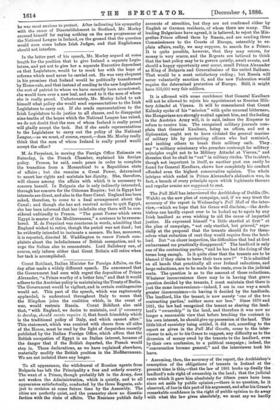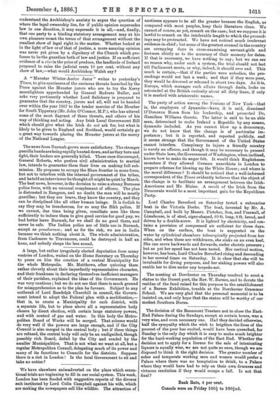• Assuming, then, the accuracy of the report, the Archbishop's
conception of the obligations of tenants in Ireland at the, present time is this,—that the law of 1881 broke up finally the landlord's sole right of ownership in the land; that the judicial rents which it gave him absolutely for fifteen years have been since set aside by public opinion;—there is no question, be it observed, of law in this part of his argument, and after his Grace's remarkable confidence in the right of public opinion to do away with what the law gives absolutely, we must say we hardly understand the Archbishop's anxiety to argue the question of where the legal ownership lies, for if public opinion supersedes law in one direction, it may supersede it in all,—and, finally, that one party to a binding statutory arrangement may at his own pleasure recast the terms of that arrangement without the smallest show of legal right in the matter. Whether looked at in the light of law or of that of justice, a more amazing opinion was never yet given by a dignitary of the Church which pro- fesses to be the guardian both of law and justice. If on sufficient evidence of a rise in the price of produce, the landlords of Ireland proposed to raise the judicial rents 10 per cent, without any show of law,—what would Archbishop Walsh say ?







































 Previous page
Previous page